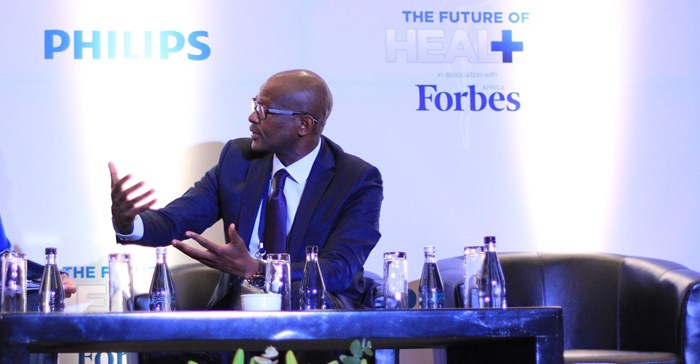Cost is a significant healthcare barrier in SA

The findings from the Future Health Index (FHI) by Royal Philips provide valuable insight into the perceived state of readiness of markets around the world to benefit from integration across healthcare systems, and identify significant areas where healthcare systems must transform to deliver value-based care in the future.
Examining the perceptions, behaviours and attitudes of both patients and healthcare providers (HCPs), the FHI focuses on three important factors to help countries become better poised to meet current and future healthcare challenges: a) access to healthcare; b) integration of the current health system; and c) adoption of connected health technology and systems.
Key South African findings from the FHI study
South Africa’s FHI score of 56,7 is based on low access to healthcare resources but a high adoption of connected care technology.
Both HCPs and patients note improving access to healthcare services as something the government should prioritise to improve public health. Additionally, both patients (47%) and HCPs (39%) think the government should build and improve hospitals and other healthcare facilities.
In interviews, HCPs highlighted the limited amount of resources, lack of staff and education as current challenges for the market, all of which impact healthcare access.
One of the lowest rated by patients
HCPs and patients differ on the effectiveness of the health system in meeting the needs of the population, particularly when patients compared the public and private systems. Compared to patients (38%), more HCPs (46%) agree that healthcare available via the health system in South Africa meets patients’ needs
Cost is a significant barrier to healthcare
Among patients who have not visited a HCPs when they needed to, about half say that they did not visit because they could not afford it. This is significantly higher than any other market, including other emerging markets. Even HCPs acknowledge this problem, as 63% of those who have had a patient not come to see them when they had a medical reason to do so believe that patients have avoided coming to see them for the same reason (unable to afford).
Cardiology issues
About one-third of patients surveyed in South Africa have had experience with a cardiology-related issue. Cardiology patients tend to have more negative perceptions of the national healthcare system than the average patient.
However, they are more knowledgeable about connected care technology, suggesting an opportunity to use technology to improve these patients’ outcomes and experiences.
Patients with cardiology-related issues are more likely than patients in South Africa overall to use a medical device to track their own health indicators
Clear value in future integration
The need for integration is apparent to patients, as 77% report having to repeatedly provide the same information to multiple doctors; this scenario is more common among patients with a history of cardiology issues (82%).
The majority of HCPs agree that integrated health can improve the health of South Africa’s population in a variety of situations, including when patients are being treated (89%), diagnosed (89%), or using health systems for treatments that will prevent medical conditions from occurring (87%).
Valuable insights
“The Future Health Index has uncovered a number of significant areas where our healthcare system must transform if we are going to succeed in delivering long-term value-based care,” said Ntutule Tshenye CEO, Philips South & Southern Africa.
“The outcome of the South African report provides valuable insight for patients, HCPs and policymakers on where attention needs to be focused to increase levels of access, integration and adoption of health technology to improve healthcare outcomes and patient experience in the long term.”
The FHI study, (which will be run annually), was conducted in partnership with an independent global market research firm in 13 countries. More than 2,600 HCPs and 25,000 patients were questioned in Australia, Brazil, China, France, Germany, Japan, The Netherlands, Singapore, South Africa, Sweden, UAE, UK and US.


























